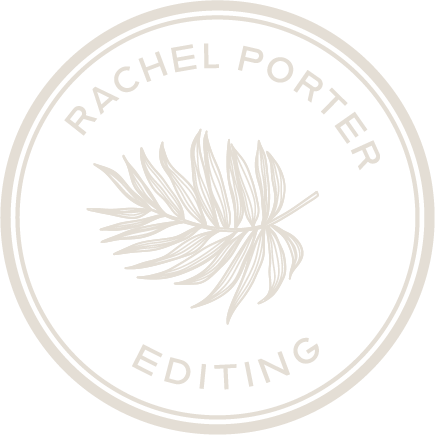5 things to know about the editing process
1. An editor is an advocate for the reader.
An author and an editor have the same goal: to create a seamless experience for the reader.
For the author, this means creating text that is interesting, informative, and achieves their unique goals.
For the editor, this means suggesting adjustments to the text to ensure that it is free of distracting errors and conflicting or inaccurate information, so that the author’s unique goals are communicated effectively.
2. “Editing” means many things
The term “editing” can encompass many things, so it’s important that both you and your editor are on the same page about the type of editing you are looking for. You should thoroughly explore this together in your initial conversation.
It is very helpful if you come to this conversation having a good sense of 1) what your goals for the document are, and 2) what, if anything, you are struggling with.
However, you may feel completely lost, and that’s okay too! A good editor will both thoroughly explain their editing services and discuss your needs before an agreement is made.
3. Your text will likely go through two or three rounds of review
It is standard practice for an editor to make two “passes” of a document, or to review it twice. This ensures that nothing has been missed, and that any changes made following the first round can be reviewed as well.
What edits are made depends on what level of editing you have requested. Editors can review a document for everything from grammar to cross references to continuity to style to wordiness—and on and on.
If your document is particularly complex or requires a great deal of revisions, it may need additional rounds of review. It is important not to skip these additional rounds, as many errors are caught only when reading for a second or third time.
4. You can decide whether or not to accept the comments and suggestions
Some edits are straightforward, such as corrections to word usage, but others are more subjective.
The editor’s job is to think “would the intended audience understand this?” and edit accordingly. When they can, a good editor will 1) pose questions to the author (“queries”) rather than impose their own ideas on the text, and 2) offer suggestions that emulate the author’s voice.
Ultimately, you, the author, can decide whether or not to accept each edit. And a good editor will not be offended—it is your writing, after all.
5. It can feel really personal
Perhaps the most important thing to prepare for is how personal the editing process may feel. Even if a document isn’t particularly meaningful to you, you are still its author. A good editor will be considerate and thoughtful when making comments and suggesting changes. However, any changes and critiques to something that you wrote can feel like a judgment of you as an individual.
Please remember that this is not the case: a good editor is not there to critique you or your message, but to help you in communicating your message effectively. You and your editor have the same goal.
Ultimately, working with an editor can be a rewarding and positive experience as you work together to refine, enhance, and perfect your message for your audience.
Let me collaborate with you on your next writing project—because your words deserve to be presented flawlessly.
